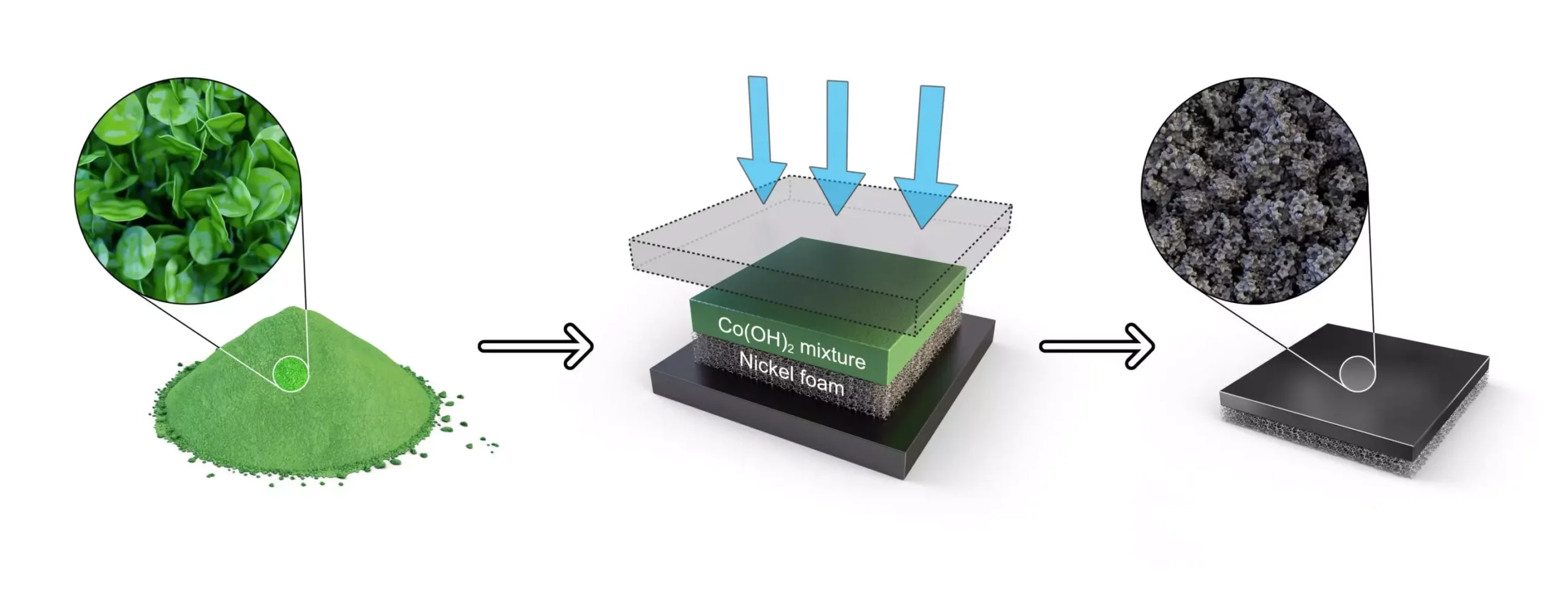The development of a one-step electrode fabrication process by Dr. Sung Mook Choi and his research team at the Korea Institute of Materials Science marks a significant milestone in South Korea’s technological advancement. This breakthrough, detailed in the journal Applied Energy, showcases a revolutionary method for producing electrodes, a crucial component of anion exchange membrane water electrolysis, directly from raw materials to a mass-producible level.
The traditional manufacturing process for electrodes involved multiple complex steps such as hydroxide-oxide-crushing-dispersion-coating-drying. However, the new one-step hot-pressing process simplifies the entire process by 60%, eliminating the need for various separate steps. This advancement not only streamlines the production process but also ensures the creation of a highly uniform catalyst layer, essential for optimal performance.
Through careful control of cobalt hydroxide slurry conditions, temperature, and pressure during the hot-pressing process, the research team successfully fabricated a catalyst layer composed of uniform oxide particles, each only 10 nanometers in size. This level of precision and uniformity has resulted in significantly improved efficiency of hydrogen production and enhanced durability during continuous operation.
The team’s success in applying this new electrode fabrication process to a commercial-scale stack of anion exchange membrane water electrolyzer is a testament to the practicality and effectiveness of this technology. The stability and performance of the membrane electrode assembly (MEA) incorporating an anion exchange membrane and a hydrogen evolution catalyst have been confirmed in a real-world water electrolysis cell.
The potential impact of this technological advancement extends far beyond the laboratory. With projections indicating that green hydrogen production from water electrolysis could reach 11 million tons and 69 gigawatts of capacity by 2030, the need for efficient and durable electrode fabrication processes becomes increasingly crucial. Efforts in South Korea to develop megawatt-level anion exchange membrane water electrolysis systems by 2024 aim to commercialize this technology by 2030, ensuring a competitive edge in the global market.
The development of a one-step hot pressing electrode fabrication process by Dr. Sung Mook Choi’s research team represents a significant leap forward in the field of anion exchange membrane water electrolysis. By simplifying the manufacturing process, improving efficiency and durability, and paving the way for commercial-scale application, this technology holds immense promise for the future of green hydrogen production. It is through such innovations and advancements that we can secure a sustainable and technologically advanced future for generations to come.


Leave a Reply